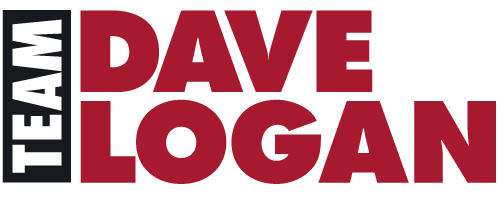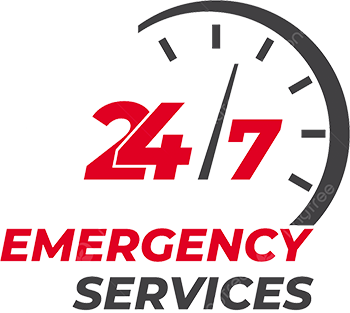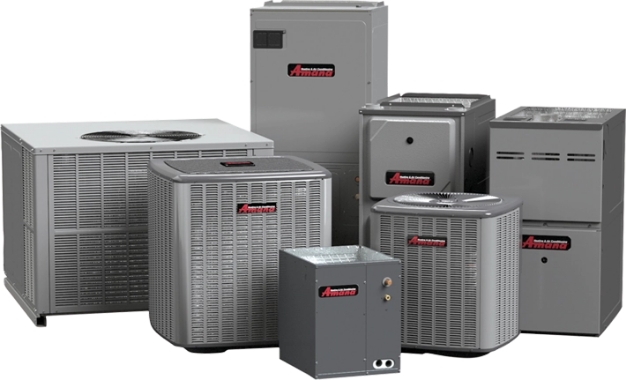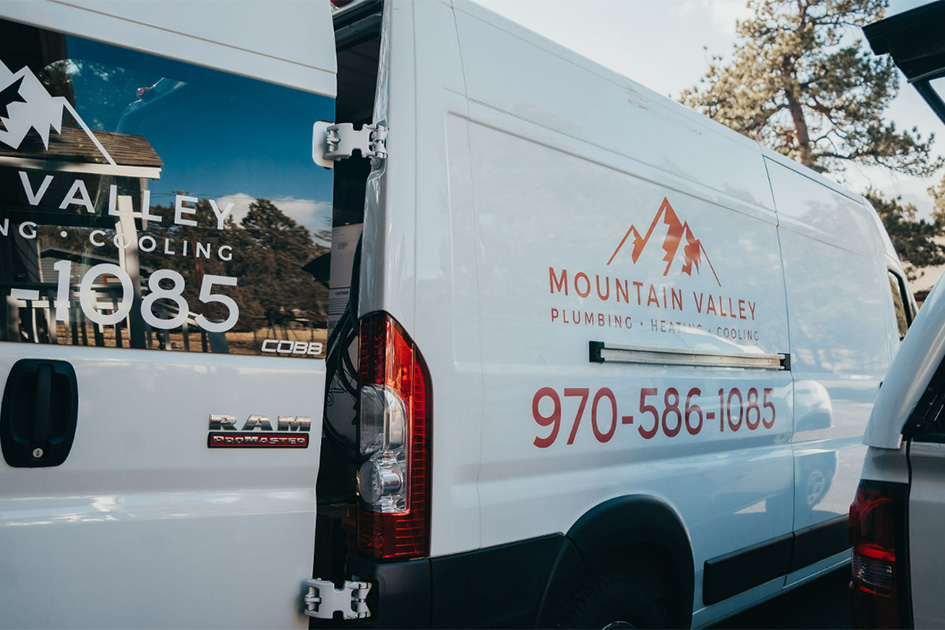10 Common Plumbing Myths Debunked: What Every Homeowner Should Know
Did you know fixing leaks could save around 10% on water bills? This information comes from the EPA WaterSense. Yet, many people don’t know the common plumbing myths. These can raise costs and lead to big plumbing problems. It’s key for homeowners to know the truth from myths. This helps keep their plumbing working well and safely.
Many homeowners follow old beliefs that lead them to ignore regular plumbing checks. Skipping these checks can lead to expensive damages and systems not working correctly. You can save money and time if you understand the truth about leaks, “flushable” wipes, and more. We’ll clear up these myths in this article. We’ll give essential tips for homeowners. These tips will help you make wise choices.
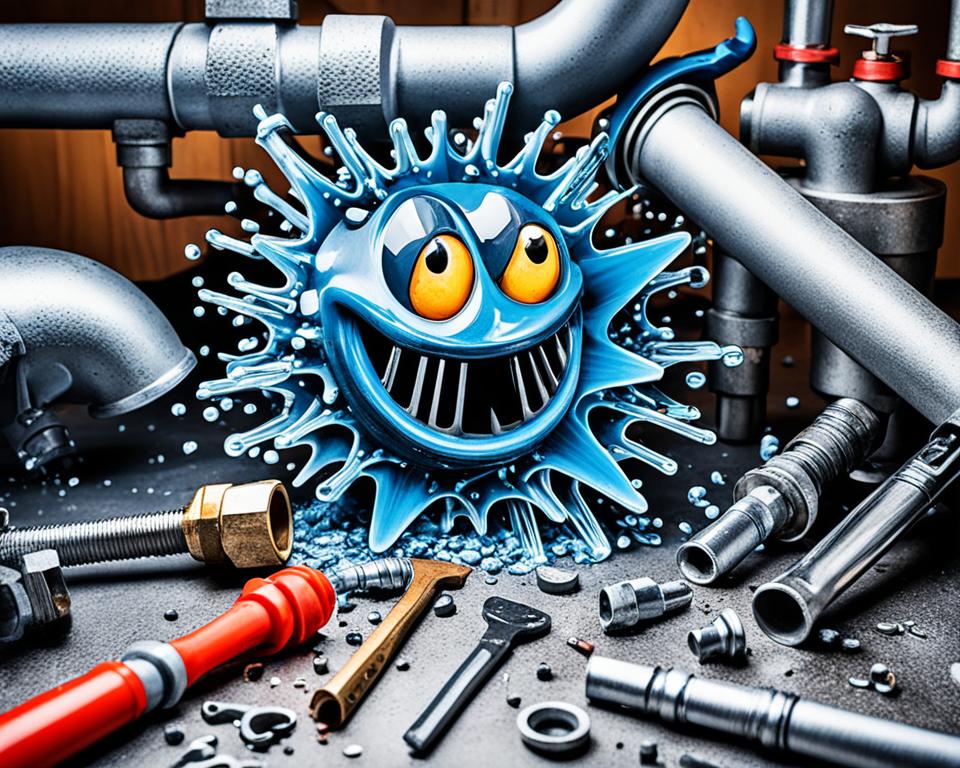
Key Takeaways
- Understanding common plumbing misconceptions can help save water and money.
- Regular maintenance of plumbing fixtures protects against costly repairs.
- Ignoring simple plumbing issues can lead to severe water damage over time.
- Relying on DIY solutions may cause more harm than good without proper knowledge.
- Choosing a licensed plumber is crucial for reliable and safe repairs.
Table of Contents
Introduction to Plumbing Myths
Many homeowners face plumbing misconceptions that cause confusion and expensive errors. These myths usually suggest easy fixes for complex issues, which can make things worse. For example, many people think vinegar and baking soda can clean drains well. But this mix doesn’t cut it for grease and grime and can even harm drains over time.
Another common mistake is thinking that “flushable” wipes are safe for toilets. These wipes aren’t biodegradable because they’re made of cotton and plastic fibers, leading to serious clogs. Items like cotton balls and paper towels shouldn’t be flushed, but many people do it anyway, causing blockages.
Some myths are at odds with facts, like the belief that putting a brick in your toilet tank saves water. While it might seem to reduce water use, it can mess with how your toilet works and cause clogs as the brick breaks down.
There’s also the myth about pouring hot water down the drain to save grease. In truth, grease sticks in pipes and hot water can’t stop the clog; it might even make it worse lower down. Not everything should go in garbage disposals, too. Coffee grounds, pasta, and eggshells are a no-go because they can cause clogs.
Knowing the truth about these plumbing myths is crucial. By learning the facts, you can take better care of your plumbing. This knowledge helps you avoid mistakes that could cost you later on.
Understanding the Impact of Plumbing Myths
Plumbing myths can cause big problems for homeowners. Not knowing the truth about plumbing can lead to expensive fixes. People often think a dripping faucet isn’t a big deal. This mistake can waste over 3,000 gallons of water a year—enough for more than 180 showers.
Many believe items labeled ‘flushable,’ like wipes, won’t harm plumbing. Despite being marketed as toilet-friendly, these wipes don’t break down well. They can block pipes, creating costly issues. New York City spent more than $18 million in five years on such problems. This shows the high price of plumbing myths.
Knowing the truth about plumbing can save you trouble. For instance, fixing leaks saves water and cuts your bill. On average, homes lose about 10,000 gallons of water yearly due to leaks. Fixing these issues quickly makes your home more water-efficient and saves money.
Being informed about plumbing can stop serious home problems. It’s vital to learn which actions keep your plumbing system running well. This knowledge keeps your home’s plumbing in good shape.
| Myth | Impact | Reality |
|---|---|---|
| Leaky Faucets Are Harmless | 3,000 gallons wasted/year | Leads to higher water bills and possible mold growth |
| Flushable Wipes Are Safe | $18 million spent on repairs | Clogs plumbing systems and costs money |
| Grease Can Be Disposed of Down Drains | Potential clogs and blockages | Grease solidifies, coating pipes |
Myth: A Leaky Faucet Isn’t Serious
Many people don’t think a leaky faucet is a big deal. They think it’s just annoying. However, a small drip can waste over 3,000 gallons of water yearly to fill a whole swimming pool. This shows how serious home water waste from a leaky faucet can be, beyond just raising your bills.
The Consequences of Ignoring a Drip
Not fixing a drip can cause many problems:
- Higher water bills from using too much water.
- Water damage to cabinets, countertops, and floors.
- It might also indicate more significant plumbing problems like bad washers or corrosion.
Fixing a leaky faucet quickly can help you avoid more plumbing repairs later.
How to Fix a Leaky Faucet
Fixing a faucet yourself is often straightforward. Here’s what to do:
- First, turn off the water going to the faucet.
- Then take off the faucet handle to get to the inside parts.
- Check and change any worn washers or O-rings.
- Put the faucet back together and turn the water back on.
If it still leaks, you might need a plumber to fix it right and stop further issues.
Myth: Flushable Wipes Are Safe for Toilets
Many think flushable wipes are okay to flush because of their labels. But, they can cause serious toilet plumbing issues. Unlike toilet paper, these wipes don’t break down quickly.
They stick together and block pipes, leading to significant clogs. This misconception can cost you.
Why Wipes Cause Clogs
Flushable wipes don’t break down quickly, which makes them a problem. Although they’re supposed to be flushable, they gather in pipes and cause blockages. Cities spend millions to fix wipe-related clogs.
These clogs get worse when wipes mix with grease and trash. This mix creates a big problem for our plumbing.
The True Cost of Flushable Wipes
Flushable wipes can be expensive to repair. If not fixed, these clogs require professional help, which is pricey. It’s better to throw wipes in the trash. This simple step helps avoid plumbing nightmares. Want to learn more about plumbing myths?
Check out this detailed guide. It talks about the harm caused by plumbing myths.
Myth: Hot Grease Can Drain Without Issues
Many people think it’s okay to pour hot grease down the drain. This wrong belief can cause significant problems in your home’s plumbing. Hot grease might stay liquid at first in your pipes. But when it cools off, it turns solid and can block your pipes. These blockages can lead to expensive repairs.
The Reality of Grease Buildup
Grease doesn’t just affect your home’s pipes; it’s a problem for city sewers, too. Big, hard, fat clumps of grease, called fatbergs, can block the sewage system. These fatbergs cause sewage to back up and require much work to clean up. It’s surprising, but grease issues cause many blockages, not only in homes but also in businesses.
Proper Disposal Methods for Grease
To prevent these problems, you must get rid of hot grease correctly. Here are some good habits:
- Let the grease cool and harden, then throw it in the trash.
- Use a grease separator, which you can buy online, to keep your kitchen clean.
- Put small grease into a container, seal it, and then toss it.
- Don’t rinse grease down the drain with hot water or soap because it might build up.
Proper grease disposal can really help. It lowers the chance of clogs and helps your pipes stay in good shape.
Myth: Garbage Disposals Work Like Blades
Many people think garbage disposals cut food waste with blades. But this is not how they work. Instead, they use impellers and shredding teeth to crush and grind waste. This shows disposals work in a way most don’t realize.
Not everything should go into the disposal. Hard scraps and fibrous veggies might harm it, making repairs expensive. It needs regular care to avoid clogs and keep it working well.
Trying to fix a clog with hot water can make things worse. Hot water can harden oil and grease, causing more blockages. It’s best not to dump such things down the drain.
Using lemon peels to fight odors might seem clever, but it’s only a temporary fix. This method can also harm your disposal over time. Knowing the truth about these myths is key to using your disposal right and keeping it going strong.

Myth: Ice Cubes Sharpen Garbage Disposal Blades
Many people think ice cubes sharpen garbage disposal blades. But, these disposals work with impellers, not blades. They smash food against the unit’s walls. Knowing how they work helps you take better care of them.
How Garbage Disposals Operate
Disposals have a motor and metal impellers. These impellers spin fast to break down food. They don’t need sharpening like blades do. Ice cubes can’t sharpen them, but they do help clean. Running cold water also helps by moving waste down the drain.
Best Practices for Maintaining Your Disposal
Follow these tips to keep your disposal in good shape:
- Use cold water while the disposal works to move food particles along.
- Clean it with ice cubes and salt to remove food and grime.
- Don’t put fibrous foods, grease, or oversized items in it because they can clog it.
- Use citrus peels in small amounts. They fight odor but can hurt the disposal if used too much.
Using these tips can make your garbage disposal last longer. It also helps avoid expensive fixes.
Myth: Chemical Drain Cleaners Are Safe
Many people think chemical drain cleaners are a fast fix for tough clogs. But, this idea can cause big problems for your plumbing and pipes. Using these products might do more harm than good.

The Dangers of Chemical Cleaners
Chemical drain cleaners can be risky. They can harm your plumbing and health. Here are some concerns:
- They can make pipes corrode, leading to leaks and expensive fixes.
- The fumes can hurt your lungs and breathing.
- If you touch them, you might get burns or injuries.
- If not used right, they might make a clog worse.
If ignored, a small clog can become a big issue, leading to overflow or even flooding. It’s best not to wait too long to fix a drain problem.
Safer Alternatives for Drain Maintenance
Plumbing safety and care are essential. Think about using environmentally safe cleaning methods. Here are some good choices:
- Getting your drains professionally cleaned once a year helps prevent clogs.
- Home remedies like baking soda and vinegar are quick fixes but not long-term solutions.
- Techniques like HydroScrub® Jetting clear blockages without harming the environment.
Choosing safer options helps the environment. It also keeps your plumbing in good shape.
Myth: Plumbing Fixtures Require No Maintenance
Many homeowners think their plumbing fixtures don’t need regular upkeep. This belief can lead to big problems over time. To keep your plumbing working well, it’s vital to pay attention to your fixtures. Neglect can cause leaks and other issues that may raise your utility bills. Setting aside time for regular inspections and upkeep can make your faucets and toilets last longer. This saves you time and money.

The Importance of Regular Maintenance
There are key reasons to maintain your plumbing fixtures:
- Early leak detection can prevent severe water damage.
- Regular checks help you find signs that your plumbing needs care.
- Well-kept, high-quality fixtures don’t need as many repairs or replacements.
- Maintenance avoids mold growth and health risks.
Signs Your Fixtures Need Attention
Watch for these signs that your fixtures need maintenance:
- Water stains on walls or ceilings can mean you have hidden leaks.
- A rise in your water bill might show inefficiencies or leaks you didn’t know about.
- Dripping faucets or toilets that run constantly are signs of problems.
- Water pressure changes can point to blockages in your plumbing.
| Fixture Type | Maintenance Tips | Signs of Neglect |
|---|---|---|
| Faucets | Look for drips, make sure to clean aerators often. | Water stains under the sink. |
| Toilets | Check for leaks, ensure it flushes properly. | Too many clogs and weird noises. |
| Water Heaters | Clear out sediment buildup, check the pressure relief valve. | Rusty water and temperature changes. |
Understanding the importance of plumbing fixture upkeep and staying alert for signs of neglect can help you keep a more efficient plumbing system. Regular maintenance boosts performance and can help you save on water bills.
Plumbing Myths Debunked: Low Water Pressure Is Just a Fixture Issue
Many believe low water pressure only comes from problems with the bathroom or kitchen fixtures. Yet, knowing many factors that can cause low water pressure at home is essential. Issues like old plumbing or hidden leaks can lead to significant repair costs and affect your water supply.
Potential Causes of Low Water Pressure
Low water pressure can come from many sources. It’s essential to find these causes during plumbing checks. Some common reasons include:
- Clogged pipes: Debris buildup can block water flow.
- Municipal supply problems: Outside factors may reduce your water pressure.
- Old or corroded pipes: Old pipes might leak or lower flow.
- Partially open valves: Make sure all valves are fully open for better flow.
- Deteriorating fixtures: Old fixtures can also decrease pressure.
When to Call a Professional
Knowing when to call an expert is key. Persistent low pressure could mean a serious issue needing a professional look. Plumbers have the right tools and knowledge to find and fix these problems. They can:
- Efficient identification of leaks and system issues.
- Preventive insights to prevent future issues.
- Comprehensive solutions to improve your system’s efficiency.
Myth: All Plumbing Problems Are DIY Fixable
Many people think they can fix all plumbing problems themselves. However, this belief can cause more harm and cost more money. To keep your plumbing in good shape, it’s crucial to know the risks of DIY plumbing.
Risks Associated with DIY Plumbing Fixes
Homeowners often don’t see how complicated plumbing issues can be. Using wipes or store-bought drain cleaners may seem simple. Yet, these methods can badly block or damage pipes. Below are the risks of DIY plumbing:
- Waste of resources due to ineffective solutions.
- Increased potential for water damage and mold development.
- Higher costs stemming from incorrect repairs requiring professional intervention later.
- Risk of personal injury during complex repairs.
- Disruption of plumbing systems can cause further issues down the line.
Benefits of Hiring a Professional Plumber
Hiring professional plumbing services offers many benefits. Pros know how to find and fix problems correctly on the first try. Let’s look at their advantages:
| Benefit | Description |
|---|---|
| Expertise | Professional plumbers know plumbing systems well. They can identify and fix issues fast. |
| Efficiency | They solve problems quickly, which stops bigger issues, saving you time and money. |
| Quality Work | Licensed pros ensure repairs last, reducing the chance of future problems. |
| Safety | Experts safely handle risky or complicated tasks, keeping you safe from harm. |
| Cost-Effectiveness | Steering clear of DIY mistakes saves you from spending more on repairs later. |
Conclusion
Every homeowner must know the truth behind plumbing myths. When you understand the facts, you can keep your plumbing system running smoothly, saving you from unnecessary repairs and costs.
Knowing the signs of a clog and the risks of certain products helps. This awareness leads to smarter decisions about repairs and upkeep, preventing small issues from turning into big problems.
Education on plumbing keeps your home and wallet safe. Avoiding harsh chemicals and not forcing clogs are key. It’s often wiser to hire a professional plumber for serious issues. They ensure everything is handled right.
When you learn about plumbing myths, share your knowledge with others. This will help friends and family make better plumbing choices, too. By working together, you can prevent common plumbing issues, leading to a more hassle-free life for everyone.
FAQ
What are some common plumbing myths homeowners should be aware of?
Many think a leaky faucet isn’t a big deal. Others believe flushable wipes are okay for toilets. Some also think it’s fine to pour hot grease down the drain. Understanding these myths can save you from plumbing troubles.
Why is it important to debunk plumbing myths?
Debunking plumbing myths is key to making good choices. Myths can cause expensive damages and inefficient systems. Knowing the truth helps you care for your plumbing and save money.
How can I detect leaks in my plumbing system?
To find leaks, watch for water stains on walls or ceilings. Look for unexpected hikes in your water bill. Damp spots near fixtures are a clue, too. Professionals can find hidden leaks, preventing major damage.
Are there safe methods for disposing of grease?
Yes, don’t pour grease down the drain. Let it cool, put it in a sealed container, and trash it. This prevents clogs and keeps your plumbing clear.
What are the consequences of ignoring a leaky faucet?
Ignoring it can waste a lot of water, raise your bills, and damage your home. A small drip can lose over 3,000 gallons of water a year. This can lead to mold growth and higher water costs.
When should I consider hiring a professional plumber?
Hire a pro for complex issues, like ongoing leaks or low water pressure. They have the tools and know-how. A professional plumber saves you time and prevents more damage.
How can I maintain my plumbing fixtures to avoid issues?
Regularly check your fixtures for wear and tear. Tighten anything that’s loose. Clean your aerators and showerheads. Periodic checks can spot problems early, keeping everything running smoothly.
What are the risks associated with DIY plumbing repairs?
Trying to fix plumbing issues yourself can make them worse. Bad repairs can cause water damage and higher costs. Know when to call a pro to keep your plumbing in good shape.
Can I use chemical drain cleaners safely?
Chemical cleaners seem easy but can harm pipes and the environment. They may corrode pipes and hurt nature. Instead, use safer options or contact a professional for help.
How can I conserve water in my plumbing system?
To save water, fix leaks right away. Use low-flow fixtures. Be smart about water use daily. Learning about plumbing efficiency saves you money and helps the planet.



